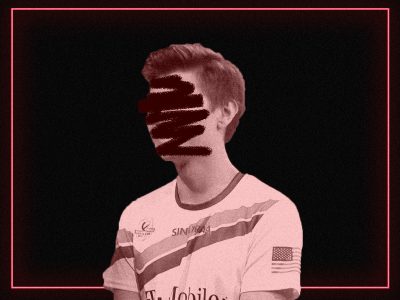TW: Sexual Assault
Among the many confusing terms at the heart of today’s culture wars, few are as exhausting as the discussion of “cancel culture.” What exactly it means will vary depending on who you ask, but it usually refers to some sort of public disavowal of a company or person. This includes withholding attention, public shaming, boycotting and so on.
In the esports world, the term “cancel culture” is now being used extensively by defenders of former Overwatch and Valorant professional Jay “Sinatraa” Won to describe something Won has overcome. Specifically, these supporters applaud his return to high-level Valorant competition, following a ban for failing to cooperate with a sexual misconduct investigation.
He served the sentence he was given and has become a better person, Won claims. Many believe Won should still be suspended, but his defenders on social media think that advocating for his suspension is a mere act of public cruelty sabotaging the man’s career.
I discussed Won’s esports career and the accusations leveled against him in greater detail in a piece for my column last year, but a brief review of them is necessary. According to his ex-girlfriend Cleo Hernandez, who spent a year compiling a Google Document of accusations, Won was sexually abusive. Beyond mere written recollections, his girlfriend also provided screenshots of text messages as well as a damning audio recording that purports to show Won continuing sexual advances despite being asked repeatedly to stop.
I personally unambiguously support the accusations and believe that they are true. Considering the preponderance of evidence and the fact that many sexual assaults are enabled by power dynamics such as between a professional or famous person and their fans, I have little doubt in their authenticity. Even if Hernandez’s document is not taken as proof on its own, it is objectively true that Won failed to comply with Valorant developer Riot, which said that he “misrepresented certain facts” and “made false statements” during their investigation into his sexual assault allegations.

The other angle that Won and his defenders have taken is that even if he is partially or fully guilty, it is acceptable for him to return to the game because he has grown and changed as a person. Are his detractors so cruel, they ask, that they cannot fathom someone learning from their mistakes?
I am all for people improving themselves and learning from their past, but I find that line of reasoning fundamentally flawed. Most obvious is that in this specific case, Won hasn’t actually changed or apologized significantly, at least from what we can see, so this ostensibly can’t even apply to him.
Additionally, even if he had reformed, I still think that having someone who committed sexual abuse back in video game subculture remains dangerous. It is the same space where he hurt someone previously, and as a famous player he would still have the same power dynamic of celebrity that enabled him in the first place. If he really had reflected on his past and changed his ways, I think that would involve understanding that he shouldn’t show his face in the gaming sphere for a very long time — if not forever — simply to protect others.
Frankly, the amount of people who are willing to welcome Won back to esports with open arms disgusts me. I obviously have immense respect for the athleticism of professional gamers and am always excited to watch a game get pushed to its limits by the most skilled, but no amount of skill can excuse a crime as despicable as sexual assault. I can only imagine how terrible it feels to be a victim of sexual assault and watch people accept someone who committed that crime.
Esports communities are already hostile enough places for women and other minorities — I cannot support making it worse for victims of sexual assault either.























































































































